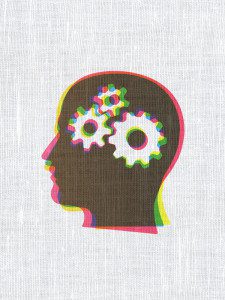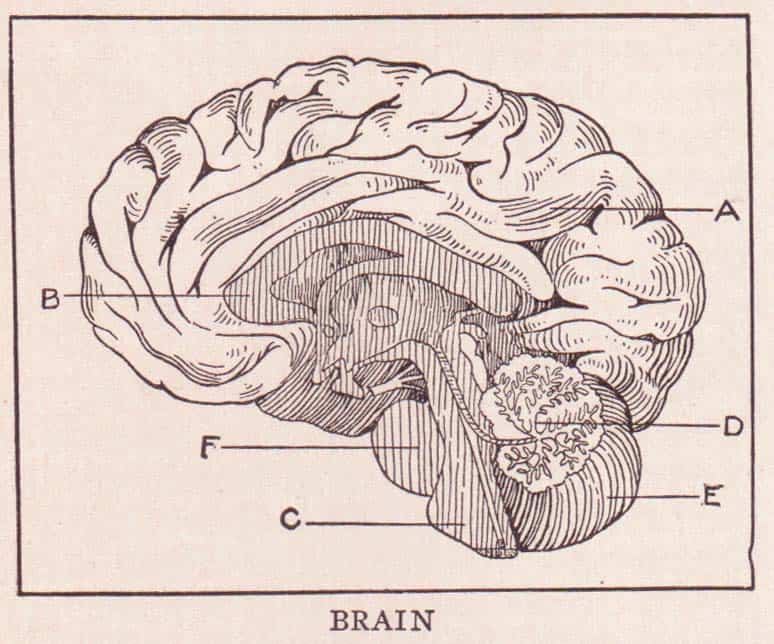Last Updated on May 23, 2016 by Faye Bridge
Contents
Brains Are Like Muscles, and Tackling Complex Skills Like Web Development May Help Strengthen Them
Learning how to program for the first time was a challenge for Adam Waxman.
He worked as a full-time investment banking analyst in Atlanta, but in January 2013, his nights were less about reclining after a day’s work and more about teaching himself Objective-C and JavaScript with books and online tutorials.
 By that summer, he left his career in finance behind and moved to New York to enroll in a programming boot camp where he learned Ruby on Rails.
By that summer, he left his career in finance behind and moved to New York to enroll in a programming boot camp where he learned Ruby on Rails.
“It’s like learning a foreign language,” says Waxman, 25, a product developer at SeatGeek, a New York ticketing start-up. “It’s much easier to learn a programming language by being very immersive.”
Careers in code and programming are no doubt booming. But are there less-visible benefits? Can a career in software and web development keep you healthy and fit, particularly your brain? Besides agile software development methods, meet-up groups and collaborative projects — which help foster social interactions — programming involves creativity, critical thinking and algorithmic skills necessary to complete tasks.
“When people say they want to learn to program, what they’re really saying is, ‘I want to solve a problem that the computer can help you with,’ ” says Sherif Abushadi, an educator at Dev Bootcamp, who has nearly 13 years of experience teaching development. “In fact, most programmers spend half their time failing over and over and fixing those mistakes until they get it right.”
Early Studies on Brains and Computer Programming
That analytical approach in the context of brain development and computers has been explored for decades.
In 1980, MIT mathematician Seymour Papert, a co-founder of the programming language LOGO, published the pioneering book “Mindstorms: Children, Computers and Powerful Ideas.” Papert claimed programming provided children with new opportunities for learning and thinking. A series of studies on the cognitive effects of programming determined that Papert’s claims were problematic, but other research studies like the “Effects of Computer Programming on Cognitive Outcomes,” and those conducted at institutions like MIT, have shown that programming can be beneficial to cognitive development.
Free trial on Treehouse: Do you want to sharpen your web design and development skills? Click here to try a trial on Treehouse.
Ongoing empirical studies will be important, of course, but here’s what we know generally about the brain: It’s like a muscle, which means we need to exercise it to conserve brain vitality, according to many research studies cited by the National Institutes of Health.
For some programmers, the ability to simplify complex issues is similar to a brain workout.
“I don’t think it’s something that’s magical, where all of the sudden I feel much smarter, but I do think that programming in general is all about tackling pretty large, unknown problems and breaking it down into smarter pieces that makes sense, ” Waxman says.
Errol King, 29, the director of experience for the kids programming app Beta, says the logical thinking skills he has acquired are transferable outside of the tech world: “The more I go into code, the more I see the world from that perspective.”
It’s not too Late to Train Your Brain
According to research, brain exercises help improve brain function and can possibly fight dementia. But as for brain games — well, science hasn’t exactly jumped on the bandwagon. Still, living a cognitively active lifestyle is never a bad thing — especially when we give our minds and bodies time to relax, says Dr. Sherrie All, a neuropsychologist and founder of the Chicago Center for Cognitive Wellness.
“We grow new brain cells throughout our entire lives and not at a very high rate so you want to keep the ones you have,” she adds.
One way to keep the brain young is learning a new skill. Last year, researchers from the University of Texas at Dallas discovered that mentally challenging activities that you’ve never done before can sharpen the brain.
When we learn a new programming skill — such as Python, PHP, Ruby on Rails, or other complex activities outside of programming like digital photography and juggling — our brains are forming new neural connections while strengthening existing ones each time we practice, according to the National Institutes of Health.

This illustration is from “The Home and School Reference Work, Volume I” by The Home and School Education Society, H. M. Dixon, President and Managing Editor. The book was published in 1917 by The Home and School Education Society. This illustration of the parts of the brain can be found on page 368. The parts are A. Cerebrum; B. Corpus Callosum; C: Medulla Oblongata; D. Arbor-Vitae; E: Cerebellum, F: Pons Varolii (Illustration from Flickr user Sue Clark)
Of course, there will always be tasks we can perform faster when we’re younger, but that doesn’t mean we’re incapable of doing them when we’re older, either. Moreover, professionals in their 40s and 50s are stepping outside of their comfort zones to explore careers in code and programming, which supersedes the misconception that our brains are inflexible.
“As people get older, they actually don’t lose the capacity to learn,” All says. “Our brains are constantly changing up until the point that we die.” She adds: “I’ve learned [to code] before and it’s a really complex brain exercise.”
New York-based actress Ondina Frate, 31, a beginner enrolled in CS50X, an introductory online programming class at Harvard, looks forward to the challenges of the training.
“It’s not as tough in the first week, but then it’s starts [getting] harder,” she says. “It’s very precise and detailed. You have you be very analytical.”
There are no shortages of Meetup groups or tech organizations, including New York Entrepreneurs & Startup Network, Just Dev It and Silicon Valley NewTech, all of which offer support and networking opportunities to programmers, developers, and coders.
“It’s also very comforting to know that there are other beginners, too, and if you don’t know something, you can talk about it,” Frate says.
Researchers from the Rush University Medical Center and University of Michigan found that similar social connections are advantageous for brain health. Like other social environments, exchanges in tech communities are exercises for the brain because of social and language skills essential to having a conversation.
“I think that when a lot of people think of programmers,” Waxman says. “They think of a nerdy guy or women alone that’s probably trying to do something all by themselves when the beauty of code is that you’re making something [together] that can help a lot of people in everyday life.”








i wish our parents could also understand that 😀 that would make our life so easier :p
It was pretty fascinating to learn how computer programming can be beneficial for the challenge and sharpen the brain. I loved how you mentioned that being older doesn’t mean you’re not capable of learning. I imagine with the right kind of training, anyone could become tech savvy.
I studied computer science in college and worked as an investment banker. In college, I had to learn Assembly, C++, Java, C# and little web development languages. I studied advanced algorithms, advanced data structures and some advanced math. Here are my observations:
1) I became highly analytical and my brain became noticeably sharper in deductive reasoning.
2) Picking up less-complex concepts such as accounting, financial analysis and corporate finance was very easy.
3) My memory seemed to have expanded massively, and I’m able to retain so much in so little time.
4) I mastered a methodical way of debugging problems in general. I’ve developed a way of methodically identifying the root causes of problems.
5) Learning modelling and VBA programming in excel was very easy and my excel models are usually more perfect mathematically than my peers who didn’t learn programming.
I encourage everyone to learn some programming and develop small software projects to cement their knowledge. The benefits are worth the time and pain.
I personally felt like I improved in mathematics after taking a programming class while in high school. Programming taught me to think in a different way. 🙂
Since 2 years ago When I had started Computer Programming, then I thought that Computer Programming is really hard for me. But now at present I think it can boost our brain & also increases our logical thinking.
Very good info!
I think it’s reassuring to know that programming strengthens the brains, seeing how many of us get into the matter each month. I found a nice complimentary post on how programming actually influences what we do in our everyday lives. Turns out, this is more helpful than hindering. Surprisingly – I keep hearing comments on how coders are an inapproachable, difficult bunch (don’t you?). Here is the post, that I found so reassuring: http://www.shorelabs.com/blog/2015/09/03/skills-that-programming-brings-to-everyday-life/.
Really looking forward to reading the rest of this site 😉
Actually, i have noticed that my brain grows smarter dally, Am a proud Programmer, i started from C programming and i try hard to master it for about 6 month (Am a slow learner), its not easy for me to learn new things ….. especially something like programming, i cried on my first day in school (you won’t believe that ) but right now i have learn many programming language like (C,C++,Java, C#,Python,SQL,HTML), i can’t believe it myself…………………….it’s just amazing
wow thats amazing
Your Efforts are highly appreciated!!
nice article. Thanks for the information
Nice article. Yes Tapas, never stop learning. We can keep our minds sharp and strong.
Nice article one thing it’s clear very well that we should never stop learning to make our brain sharp and strong ….whether it’s new programming , particular set of new skills or something new
“…which supersedes the misconception that are* brains are inflexible.”
*Our.
My brother suggested I would possibly like this blog. He was entirely right. This put up actually made my day. You cann’t believe just how so much time I had spent for this info! Thank you!
Yes, programming is a great spark to our brain powder. It’s happening to me and I enjoy to code.
oops, power not ‘powder’ 🙂
its really good article on computer programming that boost your brain power